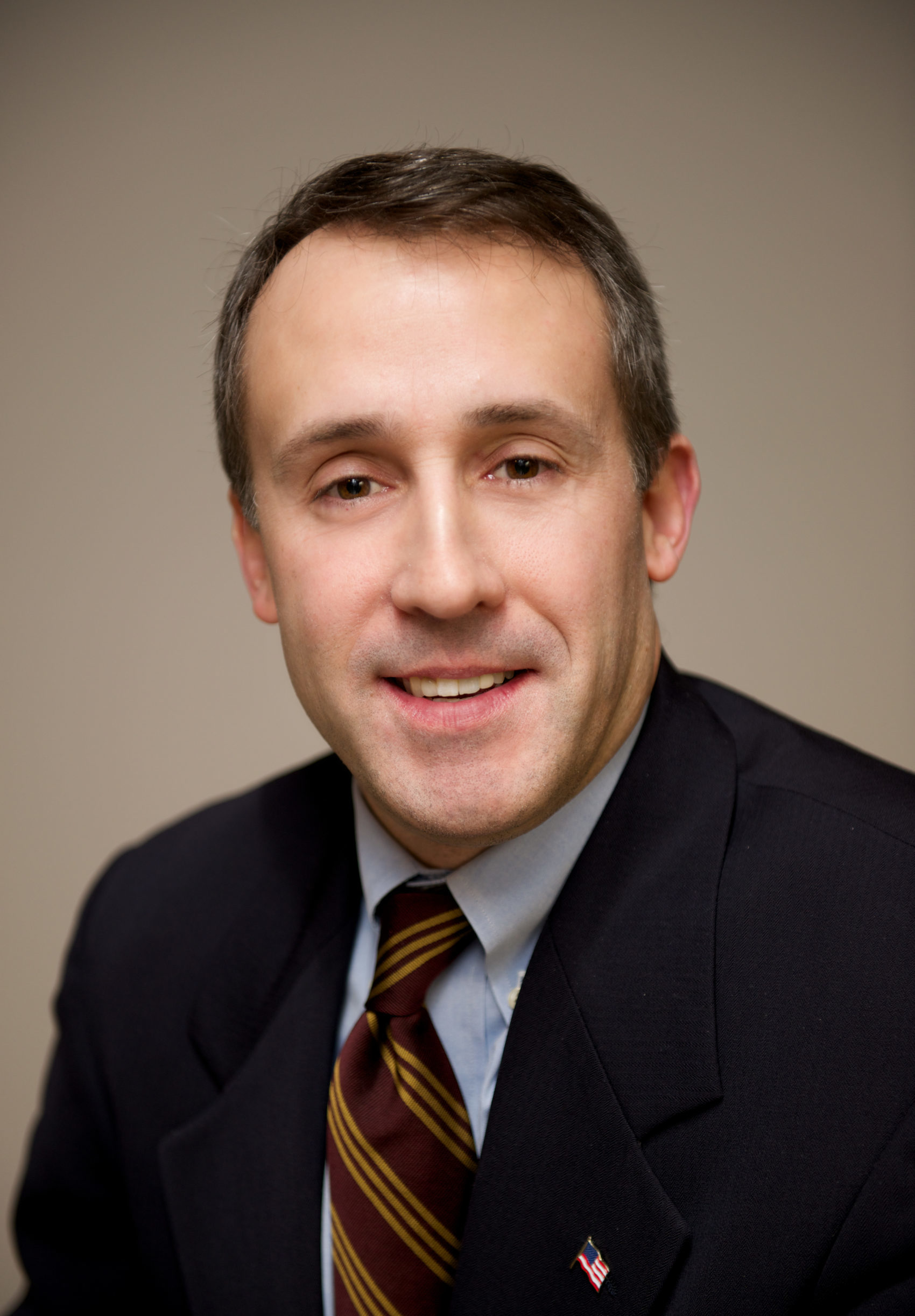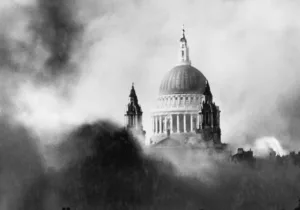“Acceptance of democracy as the world’s dominant form of government—and of an international system built on democratic ideals—is under greater threat than at any point in the last 25 years,” Freedom House concludes. Calling democracy “battered and weakened” around the world, Freedom House adds that 71 countries suffered declines in political rights and civil liberties in the most recent measured year—“the 12th consecutive year of decline in global freedom.” Equally worrisome, “states that a decade ago seemed like promising success stories…are sliding into authoritarian rule.”
This retreat of free government represents a challenge—and a threat—to America. After all, America laid the groundwork for a liberal international order founded on political and economic freedom—and thrives in a world where free governments and free markets flourish. With America promoting a liberal order, as Robert Kagan observes, “the balance of power in the world has favored democratic governments.” The alternative, Kagan warns, is a world where “great-power autocracies” undermine democratic norms, where there are “fewer democratic transitions and more autocrats hanging on to power,” where free government is on the defensive. Welcome to 2019. How did we get here, and how do we reverse this troubling trend?
Qualifiers
Before answering those questions, it’s important to spend a moment on the connective tissue between our faith and our form of government.
To be sure, the Bible doesn’t use the phrase “representative democracy.” However, there are references to representative-style bodies in the Bible. Each of the Twelve Tribes of Israel was, in a sense, a representative body. In Deuteronomy, we learn that Moses—admitting he was “not able to bear you by myself” given that the people of Israel had become “as numerous as the stars of heaven”—told “all Israel” to “choose for your tribes wise, understanding, and experienced men, and I will appoint them as your heads.” Exodus 18 explains how these men served as “chiefs” over groupings of people—in our parlance, governors and judges. “Any hard case they brought to Moses, but any small matter they decided themselves.” In a similar way, Acts describes how “the twelve summoned the full number of the disciples” and directed them to “pick out from among you” leaders to carry out essential functions for the good of the entire community.
Equally important and relevant to our discussion, God has always put a high value on individual choice and its close relative free will. In Genesis, after all, he gave Adam and Eve a choice. Deuteronomy declares, “I have set before you life and death, blessings and curses. Now choose life.” Likewise, Jesus explains that he knocks, but the choice is ours to answer.
In short, our God cares deeply about freedom. The story of God’s people is one of freedom—freedom misused, lost, pursued, and regained. In the beginning, freedom was the natural state of man. God wants us to be free—free from the tyranny of Pharaoh, Haman, Caesar, Lenin, Hitler, and Stalin, and free from the tyranny of sin. Thus, Jesus declares, “If the Son sets you free, you will be free indeed.” Paul writes, “Where the Spirit of the Lord is, there is liberty.” Peter counsels us to “live as free people.”
Since representative democracy has proven to be the best guarantor of freedom—individual, political, religious—over hundreds of years of recorded history, it seems safe for us to connect it with those references to freedom in scripture in order to make the case that representative democracy is a biblically sound way to organize society. As the Providence declaration on faith and foreign policy observes, “There is no perfect human political system, but we believe the liberal order is the least flawed of all presently available options and constitutes the best means for accomplishing the ends for which government was ordained. Politically, liberal order comprises accountable self-government, the rule of law, civil liberties, and religious freedom.”
Representative democracy is not perfect. But what Churchill observed in 1947 remains true today: “Many forms of government have been tried, and will be tried in this world of sin and woe. No one pretends that democracy is perfect or all-wise. Indeed, it has been said that democracy is the worst form of government except for all those other forms that have been tried from time to time.”
Another issue related to terminology: there’s an important distinction to be made between a “democracy” and a “republic”—one that has eroded over the centuries. As James Madison observed in Federalist No. 14, the “confounding of a republic with a democracy” was common even when the Founding Fathers midwifed the United States into existence. “In a democracy,” Madison explained, “the people meet and exercise the government in person; in a republic, they assemble and administer it by their representatives and agents.” We Americans live in a democratic republic, meaning that we elect representatives and entrust them to make and execute laws on our behalf. But for good or ill, the term “democracy” has evolved to enfold democratic republics and other representative systems, and that is how “democracy” is used here.
There’s also an important distinction to be made between “democracy” and “liberal democracy.” Democracies are characterized by elections in which the majority (or plurality) of the people determines who governs. Liberal democracies feature not only elections and majority rule, but also minority rights, institutional limits on government power, the rule of law, civil liberties, and civil society—that space where houses of worship, charities, associations, and the like buffer the individual from the state. In short, there’s an enormous difference between holding an election every now and then, and nurturing a high-functioning liberal democracy—differences we will discuss in this series.
Causes
Given those qualifiers, let’s look at some of the causes of democracy’s recent ebbtide.
Established democracies—especially liberal democracies—are today facing internal challenges that have the effect of undermining their legitimacy.
First, by promising in the post-World War II era to do increasingly more for their citizens, established democracies have become responsible for more—and are held responsible for more. This creates a problem. After all, if government doesn’t try to do too much, how poorly it functions is of little consequence. However, if government becomes the deliverer of all manner of services and benefits—an “immense and tutelary power which takes upon itself alone to secure [the people’s] gratifications and to watch over their fate,” in Tocqueville’s words of warning—then when it doesn’t deliver all the stuff it promises, people blame their government and become dissatisfied with it. That’s happening all across the West.
Second, today’s on-demand technologies streaming to us at light speed condition us for instant answers, instant gratification, and instant solutions. But representative democracies aren’t designed to deliver instant solutions. In fact, America’s political system was designed for the very opposite: a deliberate and deliberative system with built-in checks and balances inside the federal government and across multiple levels of government, that aims to prevent too-rapid change and instead deliver incremental change. Adlai Stevenson was right when he observed that representative democracy “depends upon giving ideas and principles and policies a chance to fight it out.” Policies and politicians need time to succeed or fail. Yet new technologies are rewiring us to have shorter attention spans and shorter fuses, making us less patient with everything—including government—than we used to be. This technology-driven impatience, historian Neal Gabler argues, “creates expectations that the political system cannot possibly meet.”
Do these trends put liberal democracies at a disadvantage vis-à-vis illiberal democracies and autocracies? Perhaps. Those unique markers of liberal democracy mentioned above—majority rule with minority rights, limits on government power, rule of law, civil liberties, and civil society—help to ensure freedom. However, they can be inefficient—something illiberal democracies and autocracies are quick to point out.
Illiberal democracies are characterized by strongmen who win elections but then use their power to eliminate checks on their authority. Unconstrained by the rule of law, such regimes drift into what Tocqueville called “the despotism of the majority” and ultimately authoritarian rule. Because they consolidate power and steer the state to help their supporters, these regimes claim they are more efficient and more effective. And because they use democratic means to undermine democratic institutions, they are able to make such claims without being challenged by the sort of dissent that’s a given in liberal democracies.
This is the playbook we have seen in Russia under Vladimir Putin, Venezuela under Hugo Chávez and Nicolás Maduro, the Philippines under Rodrigo Duterte, Turkey under Recep Tayyip Erdoğan. Along with China’s business-suit autocracy, these regimes are offering an alternative that, they promise, is more efficient and more durable than the messiness of liberal democracy.
Liberal democracy’s answer—especially the American democracy’s answer—has been found wanting, which we will discuss in part two of this series.
Alan W. Dowd is a contributing editor to Providence and a senior fellow with the Sagamore Institute Center for America’s Purpose.






